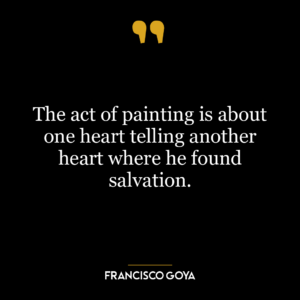This quote highlights the concept of evolving understanding and self-reflection. When Picasso refers to understanding his own pictures best six months after he’s done them, he’s suggesting that the full depth and meaning of his work isn’t immediately apparent even to him, the creator. Instead, it takes time, distance, and reflection to fully grasp the nuances and implications of what he’s created.
This could be due to a number of factors. First, the act of creation itself can be an intense, consuming process where the artist is deeply immersed in the work. This immersion could potentially blur the overall perspective and understanding of the work. It’s only after stepping back and allowing some time to pass that the artist can see the work from a fresh perspective, leading to new insights and understanding.
Second, the artist’s personal growth and life experiences in the intervening period could also influence their understanding of their past work. As they evolve and grow, they might interpret their own work in a different light, uncovering layers of meaning that were not apparent at the time of creation.
Applying this idea to today’s world or personal development, it suggests the importance of reflection and allowing time for insights to emerge. In a culture that often values instant results and quick understanding, this quote is a reminder that deep understanding often requires time and patience.
In terms of personal development, it underlines the value of revisiting our past actions, decisions, or creations after a period of time. With the benefit of hindsight, distance, and further life experiences, we might gain new insights about ourselves and our past choices. This could lead to personal growth, self-awareness, and a deeper understanding of our life’s journey.








